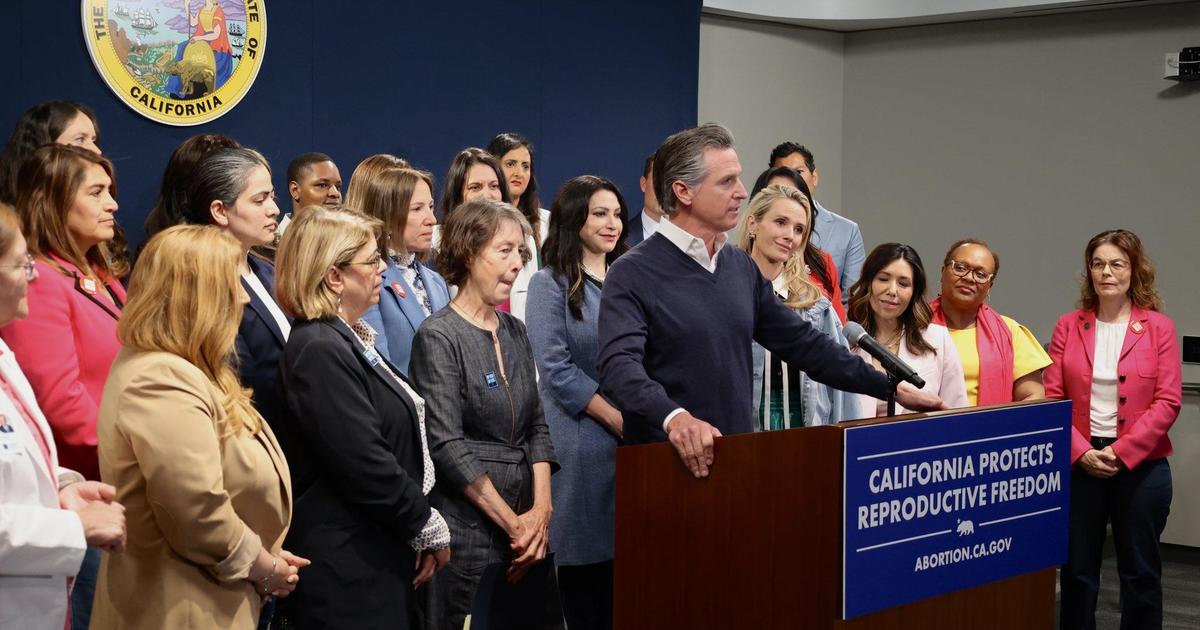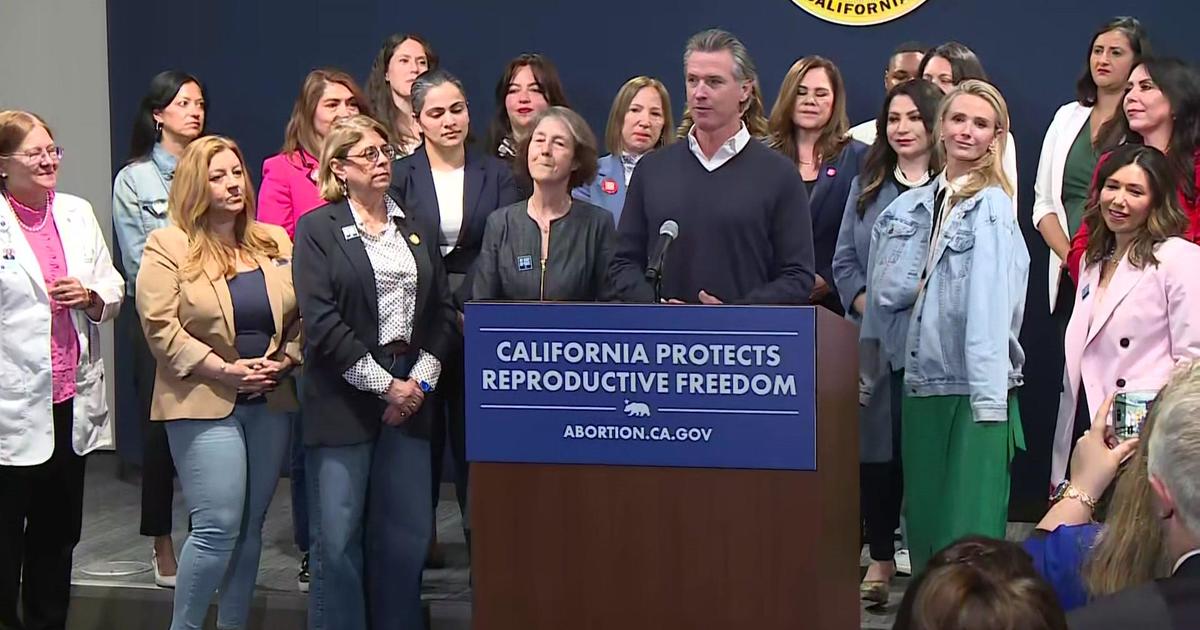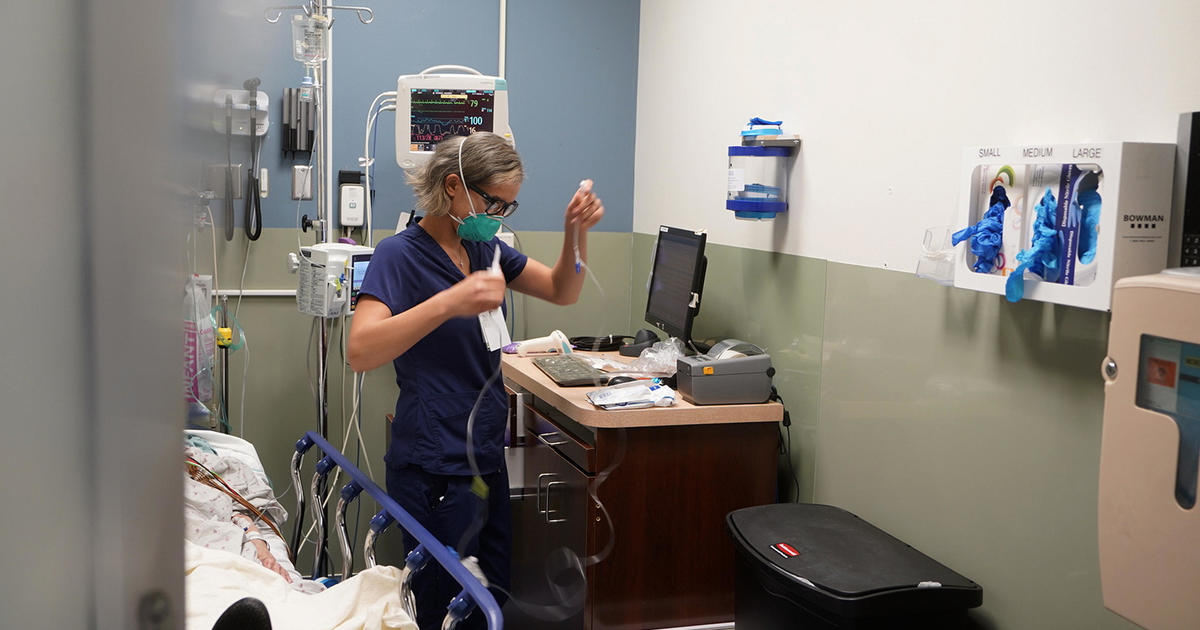Campaign 2014: Proposition 2 Would Overhaul California's Rainy Day Fund
SACRAMENTO, Calif. (AP) - California would revamp its little-used rainy day fund to pay down billions in pension obligations and other debt and to provide a larger cushion against future economic downturns under a measure voters will decide in November.
Lawmakers of both parties and Gov. Jerry Brown compromised last May to send Proposition 2 to voters. It's a result of years of negotiations about how to address California's volatile budgeting process, which features big spending during boom years and multibillion dollar deficits during recessions.
A recent Public Policy Institute of California poll found the measure lagging, with support from 43 percent of likely voters. It will likely get a boost from Brown, who plans to campaign for the rainy day fund and a separate proposal to authorize $7.5 billion for water projects.
WHAT IT DOES: Overhauls the state's rainy day fund, setting aside 1.5 percent of revenue each year as well as capital gains tax revenue over a certain threshold during boom years. For the first time, half the money will be redirected to pay pension liabilities and other state debts, while the other half is available to pad the state budget during economic downturns.
WHO SUPPORTS IT: Gov. Jerry Brown and unanimous support of Democrats and Republicans in the Legislature. Also, business, local government and civic groups, including the California Chamber of Commerce and California Forward, which are raising money to support the measure.
WHO OPPOSES IT: A parent group called Educate Our State, which pushes for more funding to be kept with local school districts, and Courage Campaign, a progressive group that wants social service spending restored to pre-recession levels.
CAMPAIGN SPENDING: The primary committee by Gov. Jerry Brown supporting the rainy day fund and a separate water bond measure has raised nearly $1.7 million through Sept. 23. That's on top of $2.8 million the committee already had available from supporting Brown's Proposition 30 temporary tax increase measure in 2012. Groups opposing the measure have not reported raising money.
A campaign committee by Brown has raised nearly $1.7 million as of Sept. 23 to support both measures.
"When money comes in, spend it, not more," Brown said of Proposition 2 after he finished first in the June gubernatorial primary. "That's my number one concern, to keep trust in people's money and not to go back to the lasting deficits of the past."
Here's how the proposed rainy day fund will work if passed by voters: Every year, the budget would set aside 1.5 percent of revenue for the fund, half the current requirement. To compensate, the fund would siphon off spikes in capital gains tax revenue, which comes from real estate and investment sales in boom years, while discouraging politicians from spending one-time windfalls on ongoing programs.
CAMPAIGN 2014
- Campaign 2014: Jerry Brown Promotes Restraint In Bid For Fourth Term As California Governor
- Campaign 2014: Neel Kashkari Aims To Rebrand GOP In California Gubernatorial Bid
- Campaign 2014: Where Do Brown, Kashkari Stand On Issues Facing California
- Campaign 2014: California State Controller's Race Gives Voters A Stark Contrast
- Campaign 2014: California Superintendent Race May Be Election's Tightest
- Campaign 2014: Marijuana An Issue In California Attorney General Race
- Campaign 2014: California Lieutenant Governor Candidates See Job's Potential
- Campaign 2014: Termed-Out California Controller John Chiang Turns Eyes Toward Treasurer
- Campaign 2014: Similar Ideas Mark Race For California Secretary Of State
- Campaign 2014: Seventh Congressional District Is One Of Most Competitive In Nation
- Campaign 2014: Historic Drought Is Background For Proposition 1 Water Bond Vote
- Campaign 2014: Proposition 45 Seeks Rate Review By California Insurance Commissioner
- Campaign 2014: Proposition 46 Seeks To Raise California's Medical Malpractice Cap
- Campaign 2014: Proposition 47 Lowers Penalty For Some Crimes In California
- Campaign 2014: Proposition 48 Puts California Tribe's Casino Plan Before Voters
At any time, the reserves could be 10 percent of the state's general fund, double its current size.
Twelve other states already have rainy day funds linking contributions to volatility in revenue, according to Pew Charitable Trusts. The nonpartisan research group also recommends states periodically review what causes tax collections to swing wildly, which Proposition 2 does not do.
"Volatility changes and evolves," said Brenna Erford, who manages Pew's state budget work. "These things change just as the states economies evolve, new industries spring up and old industries may no longer be a presence."
California voters already approved a rainy day fund in 2004, but it was quickly drained before the state faced multibillion dollar deficits during the recession. Former Gov. Arnold Schwarzenegger and lawmakers negotiated an overhaul during the 2010 budget crisis, but Brown has criticized that proposal as too inflexible to tap during emergencies.
This year's compromise rainy day fund presumes financial storm clouds are already coming, namely more than $150 billion in state debts, most of it for public employee pension obligations and retiree health care costs. Half the state reserves must be siphoned off to pay down those liabilities for the next 15 years under Proposition 2.
After the ballot measure cruised through the Legislature with unanimous support in May, Democratic lawmakers passed a budget bill limiting how much school districts can keep in reserves if Proposition 2 passes.
School administrators, Republican lawmakers and the American Civil Liberties Union opposed that bill, saying it could lead to teacher layoffs and larger class sizes during future recessions. The only formal opposition to the ballot measure is a parents group using those arguments.
Defenders of the provision say it was added because Proposition 2 will create a new statewide school reserve fund when education funding is stabilized. The left-leaning California Budget Project says the state will rarely set aside school-specific reserves under the measure's design.
Copyright 2014 The Associated Press.



